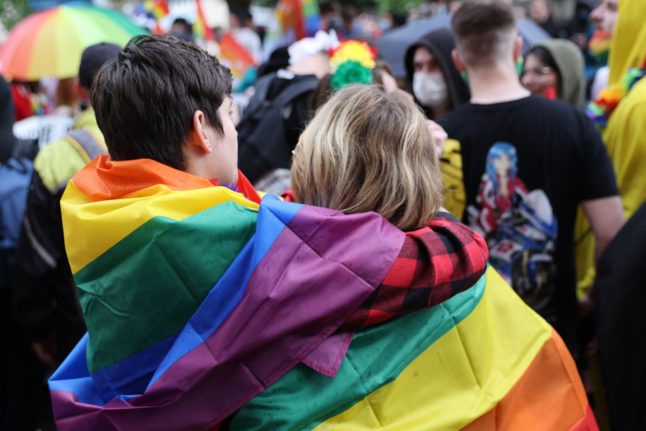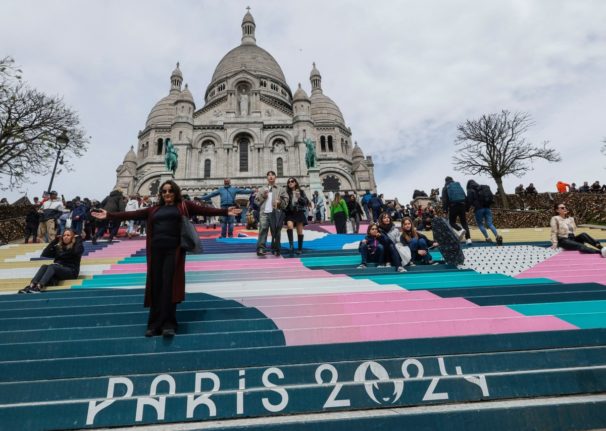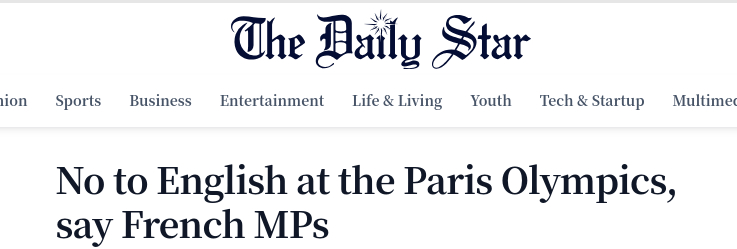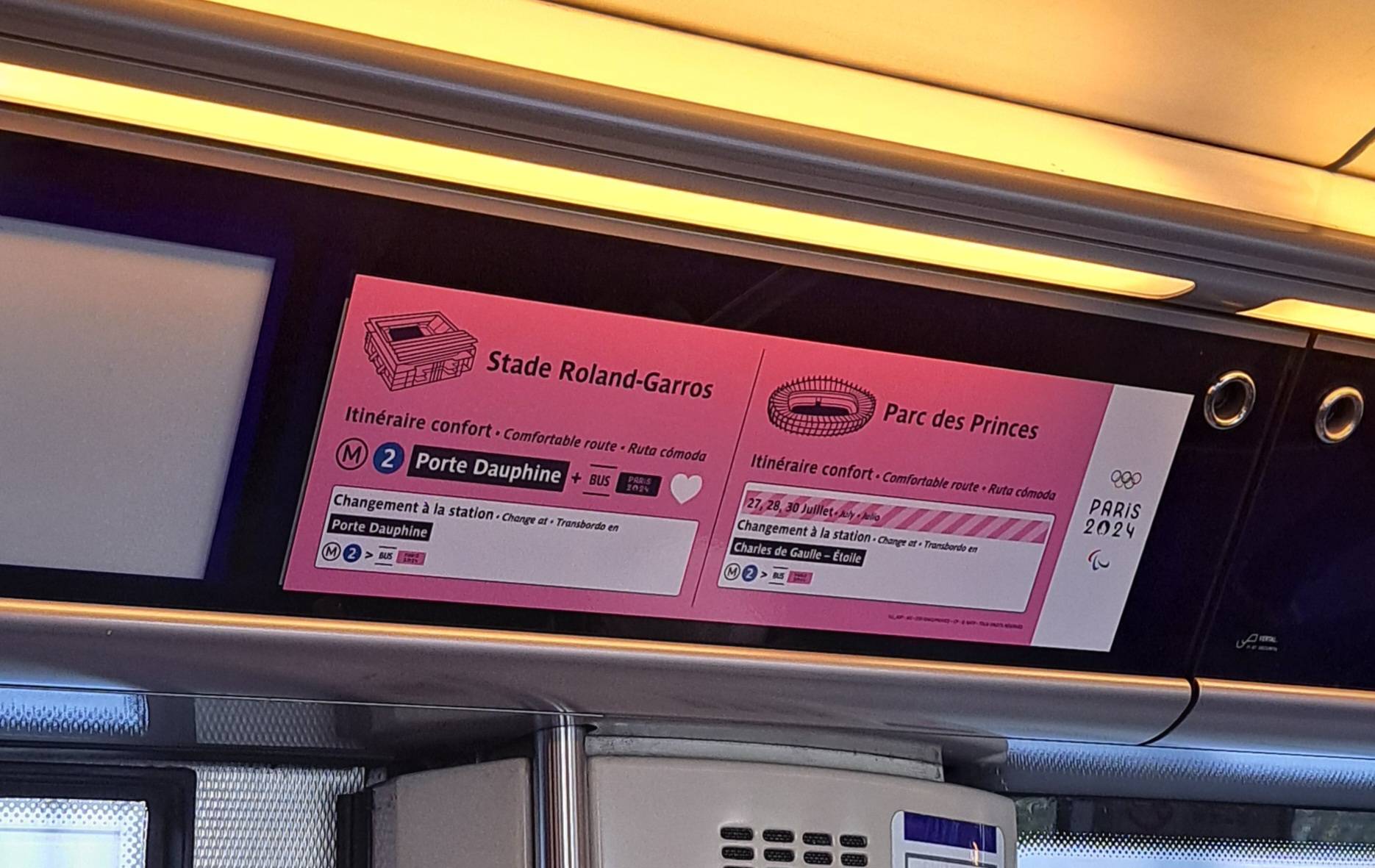The bill that would recognise state wrongdoing and offer compensation for harm suffered by gay people due to discriminatory laws in force between 1942 and 1982 received unanimous support during its first reading in France’s Assemblée Nationale on Wednesday.
“It is high time to say this evening on behalf of the French Republic: ‘Sorry, sorry to the people, the homosexual people of France who for 40 years suffered this totally unfair repression,'” France’s minister of justice, Éric Dupond-Moretti, said during his opening remarks prior to the vote.
Overall, all of the 331 deputés approved it, even though some right-wing groups expressed reservations about the concept of financial reparations for victims.
The legislation will now go back to the Senate – who had previously removed the compensation aspect of the bill – for another vote in order to agree on the final wording.
Thousands of people were sentenced under two French laws in force between 1942 and 1982, one determining the age of consent for same-sex relations and the other defining such relations as an aggravating factor in acts of “public outrage”.
France decriminalised homosexuality in 1791 during the French revolution.
But the Vichy regime that collaborated with the Nazi occupation of France during World War II then introduced a discriminatory law in 1942, and this was upheld following the war.
Legislation providing for jail or fines for same-sex couples was only scrapped in 1982.
The sponsor of the bill, Senator Hussein Bourgi of the Socialist party, said in November that he wanted the French government to recognise the state’s role in discriminating against people engaging in same-sex relations.
“This draft law has symbolic value,” he told AFP.
“It aims to rectify an error that society committed at the time.”
The punishments meted out by the courts had “consequences that were much more serious than you might think today”, Bourgi said.
“People were crushed. Some lost their jobs or had to leave town,” he said.
Antoine Idier, a sociologist and historian, called the initiative “salutary” but added that focusing on two laws of the period made it too restrictive.
“Judges employed a much wider judicial arsenal to repress homosexuality,” he said, including laws that were not specifically aimed at same-sex relations but at “moral failings” or “inciting minors to commit depravity”.
‘Hunting gays down’
Michel Chomarat, now 75, was arrested in 1977 during a police raid on a gay bar called “Le Manhattan”.
“Homophobia by the state consisted in hunting gays down everywhere,” he told AFP.
The bar was a private space with restricted access “but even so, police took us away in handcuffs and accused us of public moral outrage”, he said.
Chomarat said the draft law came “too late” because many people entitled to compensation had already died.
In an op-ed piece in LGBTQ+ magazine Tetu in June, activists, unionists and civil servants had already called for a recognition and rehabilitation of victims of anti-gay repression.
“One of the reasons why homophobia persists in today’s society is that state laws, rules and practices legitimised such discrimination in the past,” said Joel Deumier, co-president of SOS Homophobie, a non-profit organisation defending lesbian, gay, bisexual, transgender and intersex (LGBTI) rights.
There is precedent for the French initiative elsewhere in Europe.
Germany decided in 2017 to rehabilitate and compensate around 50,000 men condemned on the basis of “paragraph 175”, a 19th-century law criminalising homosexuality that was broadened by Nazi Germany and repealed only in 1994.
Austria is elaborating a similar approach, to become law next year.
‘Brought disgrace’
In Britain, where male anal sex became punishable by death under the Buggery Act of 1533, sexual relations between men were decriminalised in England and Wales in 1967, and later in Scotland and Northern Ireland.
But this was only if the sexual relations occurred in private and the people involved were over 21.
Under a recent “disregard and pardons scheme”, people in Britain can get a historic conviction for gay sex offences removed from police and court records.
This includes convictions for “buggery”, “gross indecency” and “procuring others to commit homosexual acts” — all since abolished — but not sexual activity in a public toilet, which is still an offence.
Regis Schlagdenhauffen, a social science professor at the EHESS school in Paris, said his research suggested that at least 10,000 people had been condemned for homosexuality in France between 1942 and 1982, mostly men from working-class backgrounds.
A third of them was married and a quarter had children, he said.
“Those condemnations brought disgrace and were a terrible experience to live through,” said Schlagdenhauffen.
This was the reason why many victims of state repression might not come forward, he said, preferring not to revisit the traumatic experience.





 Please whitelist us to continue reading.
Please whitelist us to continue reading.
Member comments